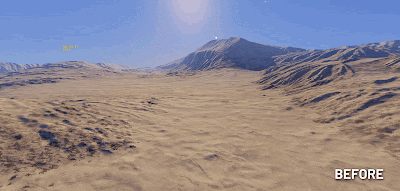What is this
Every Thursday, I will share a dev diary about what we've been working on over the past few weeks. I'll focus on the interesting challenges and solutions that I encountered. I won't be able to cover everything, but I'll share what caught my interest.
Why am I doing it
I want to bring our community along on this journey, and I simply love writing about things I'm passionate about! This is my unfiltered dev journal, so please keep in mind that what I write here are my thoughts and will be outdated by the time you read this, as so many things change quickly. Any plans I mention aren't set in stone and everything is subject to change. Also, if you don't like spoilers, then don't read this.
Space Engineers 1
Space Engineers 2 - Rethinking Combat
What are we aiming for?
- Longer, more tactical engagements
Fights should take time - measured in minutes, not seconds. We want to avoid sudden one-shot kills and give players time to react. - Preparation should matter
Players who scout, build defenses, or prepare ambushes should be able to generate unfair local advantages. - Rock-Paper-Scissors balance
No single weapon or strategy should dominate. A system where different combat types counter each other could make battles more dynamic. - Player feedback and clarity
You should know when you’ve hit something, what damage you’re doing, and what’s happening around you - without guesswork. - Support both attack and defense playstyles
Offensive and defensive roles should both be viable, with tools and mechanics that support each side.
Combat Duration & Survivability
Weapon Dynamics: Rock–Paper–Scissors
- Aimed/manual weapons beat automated turrets
- Automated turrets beat rockets/missiles
- Rockets/missiles beat aimed weapons
Detection, Infiltration & Defense
Safe Zones & Risk Management
- Limited in size and availability
- Costly to maintain over time
- Slow to set up
Character vs Grid Combat
- Characters boarding grids and taking them over
- Combat-focused suit upgrades
- Dedicated tools for sabotage or infiltration












